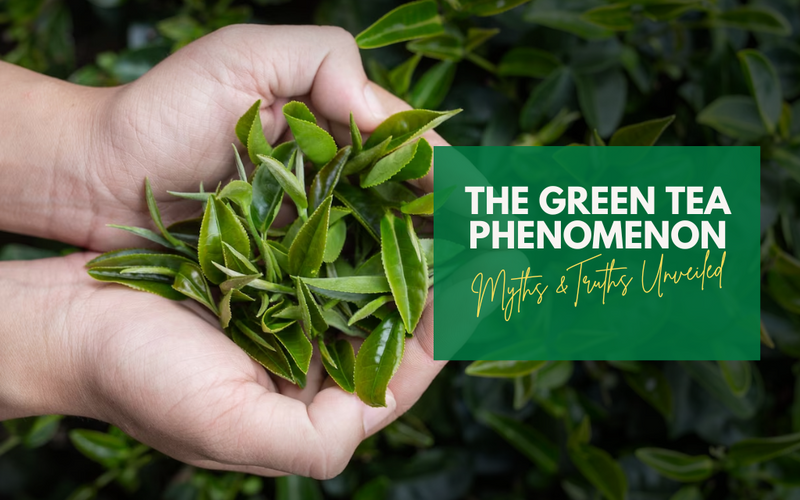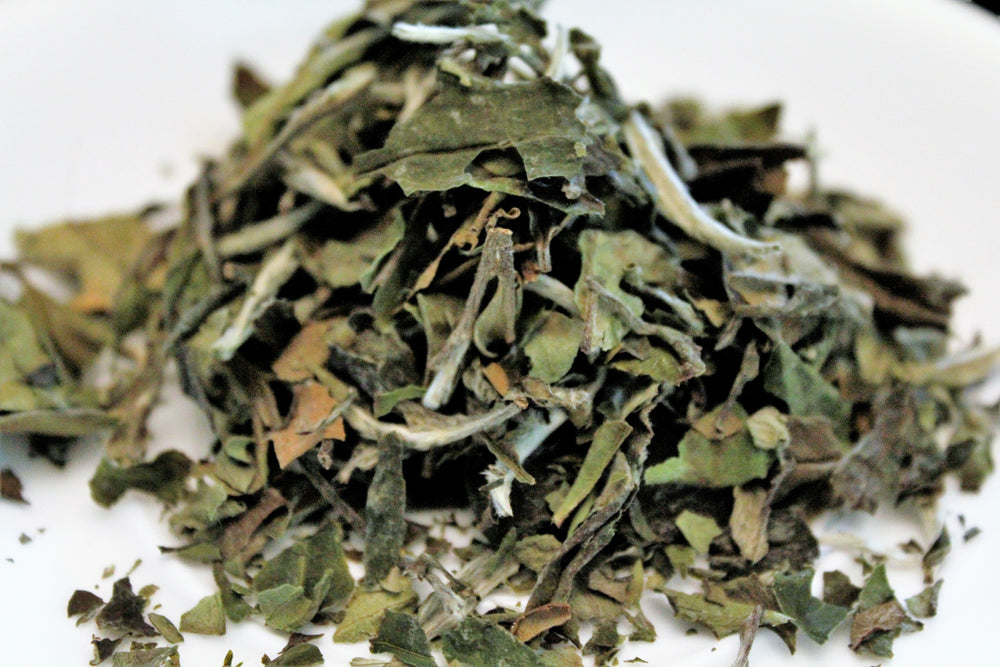Yes, white tea contains caffeine, though typically less than black or green tea. White tea usually has 15-30 mg of caffeine per 8 oz cup.
White tea stands out as a mild and delicate tea option that is often praised for its subtle, nuanced flavors compared to its green and black counterparts. Originating from the young buds and leaves of the Camellia sinensis plant, white tea undergoes minimal processing, which preserves its natural antioxidants but also results in a lower caffeine content.
This makes it a favorite choice for those seeking the health benefits of tea without the strong stimulating effects. Tea enthusiasts and health-conscious individuals alike are drawn to white tea for its gentle taste and potential wellness benefits. It’s perfect for a soothing cup that refreshes without overstimulating, making it an ideal beverage for late afternoons or evenings.

The Essence Of White Tea
White tea originates from the Camellia sinensis plant. Its minimal processing makes it unique. Tender leaves and buds get picked, then lightly processed. This gentle approach helps to retain high levels of antioxidants. Enjoying white tea gives a soft, delicate flavor experience. Uniquely, it’s less oxidized than black or green tea.
Caffeine Content In Various Teas
White tea does contain caffeine, but often in lesser amounts than its green and black counterparts. Typically, a cup of white tea holds 15-30 milligrams of caffeine, while green tea ranges from 20-45 milligrams. Black tea beats both with a higher 40-70 milligrams per cup. These figures, however, may vary.
Caffeine levels in tea are affected by multiple elements. The specific type of tea leaf plays a crucial role. Younger leaves have more caffeine. The length of time the tea is steeped also impacts caffeine content. More steep time equals more caffeine. Even the temperature of the water used for brewing can change caffeine levels. Hotter water can extract caffeine more effectively. Remember, every cup might be different!
White Tea Under The Microscope
White tea does contain caffeine, although levels can vary. Different white tea varieties may have different amounts of caffeine. The caffeine content in white tea often depends on several factors. These include the type of white tea, the processing method, and how the tea is brewed.
For instance, young tea buds tend to have more caffeine. This is compared to more mature leaves. Silver Needle, a prized white tea, is made from young buds. Thus, it usually has more caffeine than other types. White Peony, which includes some mature leaves, has slightly less caffeine.
| White Tea Variety | Average Caffeine Content |
|---|---|
| Silver Needle | High |
| White Peony | Medium |
| Shou Mei | Low to Medium |
The way you make your tea can change the caffeine. A longer brewing time can lead to more caffeine in your cup. Remember, the exact amount of caffeine can also vary from one batch to another.
Impacts Of Caffeine On Health
Caffeine, found in white tea, can have various effects on health. Experiencing increased alertness and improved cognitive functions are common benefits. Consuming caffeine in moderation could also enhance physical performance. Studies suggest that it might support heart health and assist in weight management. Yet, it’s crucial not to overdo it.
Too much caffeine may lead to restlessness, insomnia, and anxiety. Sometimes, people feel heart palpitations or digestive issues. High caffeine intake over extended periods increases risks. It’s important to balance consumption and listen to one’s body. Kids, pregnant women, and sensitive individuals need extra caution with caffeine.
Choosing Your Cup Wisely
White tea does contain caffeine, although typically less than black or green tea. Sensitive groups like pregnant women, people prone to anxiety, or those with certain medical conditions should be cautious. It’s wise to consult a healthcare provider about your caffeine consumption.
Looking to cut down on caffeine? Opt for herbal teas or decaffeinated white tea varieties. Steeping tea for a shorter time can also reduce its caffeine content. Always check the packaging for caffeine levels to stay informed and make better choices for your health.
| Group | Recommendation |
|---|---|
| Pregnant Women | Consult healthcare provider |
| Anxiety Sufferers | Avoid high caffeine intake |
| People with Medical Conditions | Seek professional advice |

Brewing Techniques And Caffeine Extraction
The amount of caffeine in white tea can vary with different brewing techniques. Shorter brewing times will generally extract less caffeine. To reduce caffeine content, it’s not just about the brew time, but also the water temperature. Using water that is not quite boiling can lead to a softer caffeine release.
Optimal brewing methods for lower caffeine involve a lower water temperature, around 160 to 180 degrees Fahrenheit, and a shorter infusion period, typically 1 to 3 minutes. Using this approach can help you enjoy the delicate flavors of white tea without a high caffeine kick.
| Brewing Factor | Guideline for Lower Caffeine |
|---|---|
| Water Temperature | 160 – 180°F (71 – 82°C) |
| Infusion Time | 1 – 3 minutes |
Frequently Asked Questions For Does White Tea Have Caffeine
How Much Caffeine In White Tea?
White tea contains 15-30 mg of caffeine per 8 oz serving, which is generally lower than green or black tea. The exact amount can vary based on the tea’s cultivation, processing, and brewing time.
Is White Tea Good For Health?
Yes, white tea is beneficial for health. It’s rich in antioxidants, supports heart health, aids weight management, and can improve dental health. Always consume in moderation as part of a balanced diet.
Can White Tea Aid Sleep?
White tea has less caffeine than other teas, which may reduce its potential to disrupt sleep. However, sensitivity to caffeine varies, so it’s best to avoid it before bedtime if you’re sensitive.
Does White Tea Affect Hydration?
Despite its caffeine content, white tea is still hydrating. The diuretic effect of caffeine is mild, so white tea can contribute to your daily fluid intake and help you stay hydrated.
Conclusion
As we’ve explored, white tea does contain caffeine, though in lesser amounts than its black or green counterparts. This delicate brew can offer a gentle energy lift, suitable for those sensitive to stronger caffeinated drinks. Embrace white tea for a soothing, yet alert experience in your daily ritual.
Enjoy its subtle infusion and reap the benefits.

